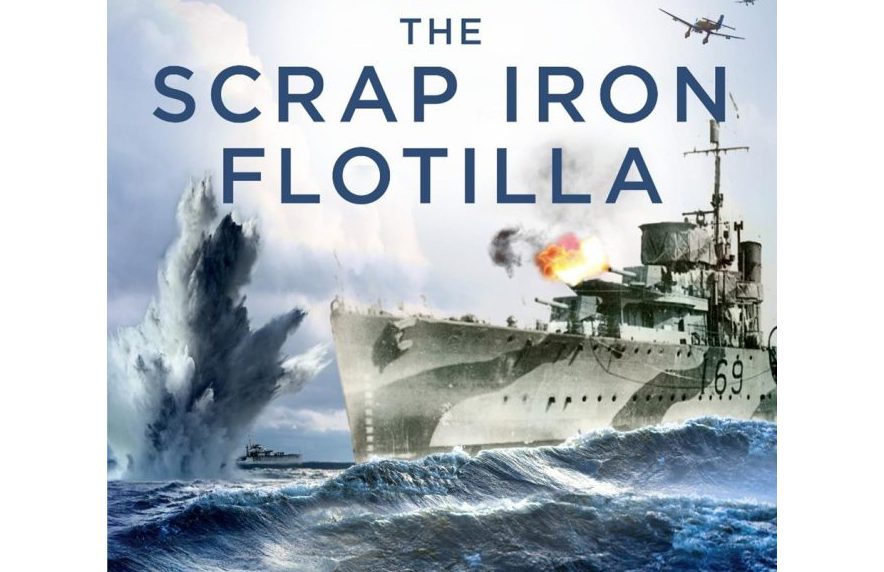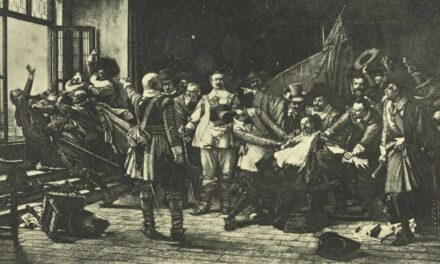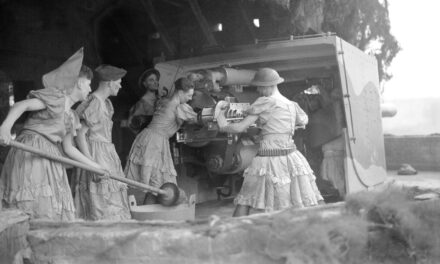Live Presentation via Zoom August 17 @ 7:00 pm – 8:00 pm AEST (UTC+10)
Presented by Military History & Heritage Victoria
When war broke out in the Northern Hemisphere in 1939, the British called upon their Australian allies for support. The Australian government responded by sending five navy destroyers – HMAS Stuart, Vendetta, Vampire, Voyager and Waterhen.
These were old ships, built for battle in WWI and discharged from official duty in peacetime to see out their old age on Australian shores. But despite the Nazi propaganda minister, Joseph Goebbels’ sneers that they were a “a consignment of junk,” a load of “scrap iron”, these ships were tough and well built, each with a 150 strong crew of seafaring men.
As France fell to the Nazis in June 1940 and in the face of a powerful Italian enemy fleet, the British Mediterranean Fleet and these five Australian destroyers found themselves in a David vs Goliath situation.
Yet, the flotilla remained fearless. They escorted troops and supply convoys, hunted for submarines and bombarded enemy coasts.
This Australian squadron rescued thousands of soldiers when the Nazis invaded Greece and valiantly fought in the last great fleet action between battleships that the world would ever see, the Battle of Matapan in March in 1941.
The Australian destroyer HMAS Waterhen was sunk by an Italian dive bomber on the ferry run to Tobruk – the first Australian warship to be lost to enemy action in WW2.
A captivating retelling of this valiant contribution to the war, The Scrap Iron Flotilla is cemented in Australian naval legend. Though, at its centre it is a story of human bravery and defiance, brought to life by Carlton’s exceptional storytelling and passion.
About the presenter

In a working life of more than 50 years, Mike Carlton became one of Australia’s best-known media figures. He has been a radio and television news and current affairs reporter, foreign correspondent, radio host and newspaper columnist.
He was an ABC war correspondent in Vietnam in 1967 and 1970, and for three years was the ABC’s Bureau Chief in Jakarta. He also reported for the ABC from London, New York and major Asian capitals. In television, he was one of the original reporters on the ABC’s ground-breaking This Day Tonight in the 1970s. He also worked for Nine Network News, and A Current Affair.
In 1980 Mike turned to talk radio, first at Sydney’s 2GB with a top-rating breakfast program, and then for four years in London at Newstalk 97.3FM, where he won a coveted Sony Radio Academy award in 1993 for Britain’s best talk breakfast show. His radio satire on current affairs, Friday News Review, was “must listening” in Australia and the UK.
In television, he reported and hosted Indonesia: A Reporter Returns, a three-part documentary for SBS; he worked on Radio 2UE as a broadcaster for many years and wrote a long-standing column for the Sydney Morning Herald.
The book
In his fourth book on Australian naval history, respected journalist and media commentator Mike Carlton chronicles the heroic story of a small, aging squadron of destroyers, and their victories and losses in the Mediterranean during WWII.
The Scrap Iron Flotilla is rigorously researched with source material, diaries, and letters, providing a richness typical to Mike’s writing.
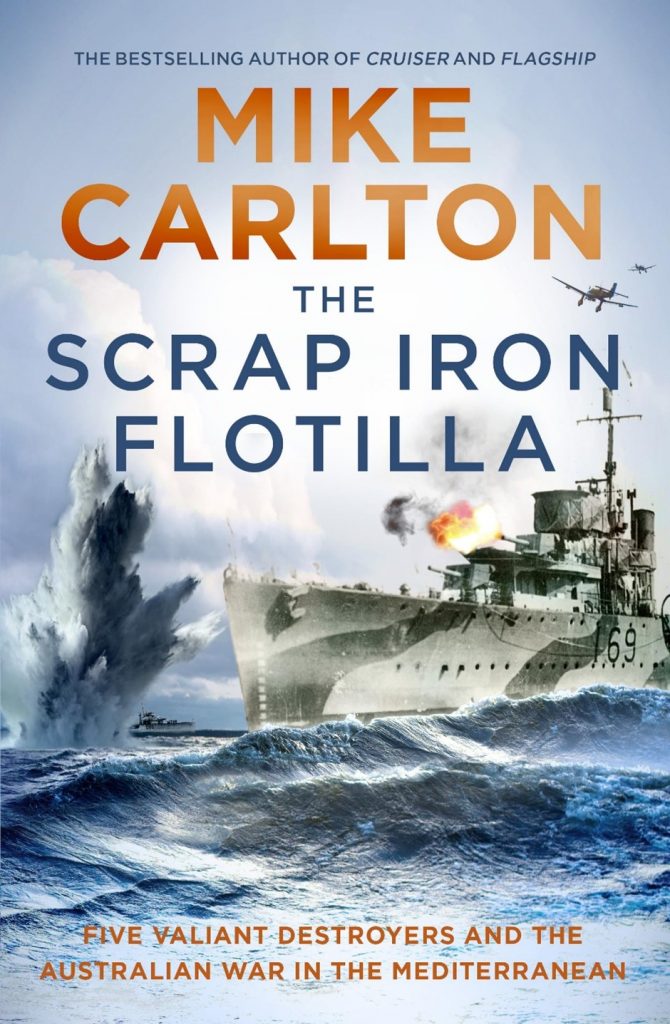
Articles you may also like
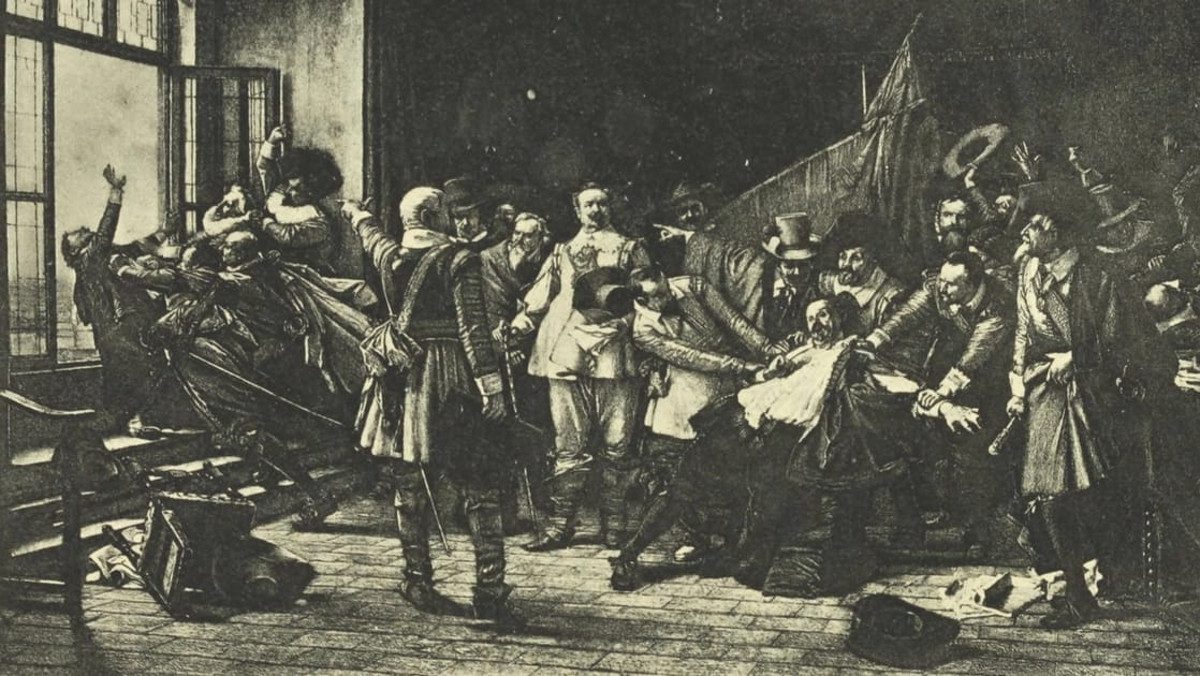
Spark to Powder: Prague and the Thirty Years’ War
The 30 Years’ War is remembered by few people except historians, but the conflict, which raged across Central Europe between 1618 and 1648, had a deep and lasting impact on the continent. It involved all major European players at the time, from the German states — where most of the fighting was done — to […]
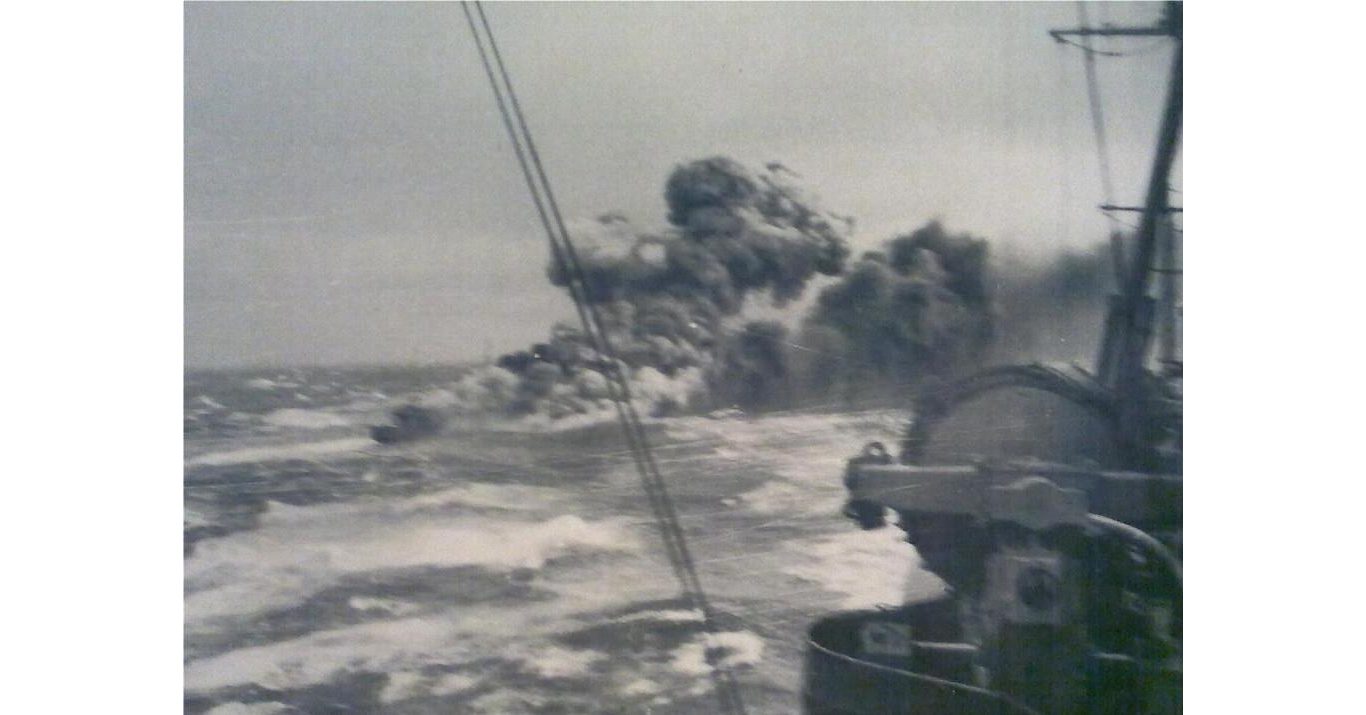
Earning the Enemy’s Respect: Victoria Cross Recommendations from the Other Side
Reading time: 7 minutes
Many readers will be familiar with the 1964 epic movie Zulu, which depicts the 1879 landmark Battle of Rorke’s Drift in the Anglo-Zulu War. In the film, perhaps the most iconic scene takes place at the end of the movie, whereby the Zulu warriors chant in respectful salutation towards the British soldiers before withdrawing after the battle. Moving, cinematic, and honourable, it’s clear why the scene lives so memorably in the hearts of fans today.
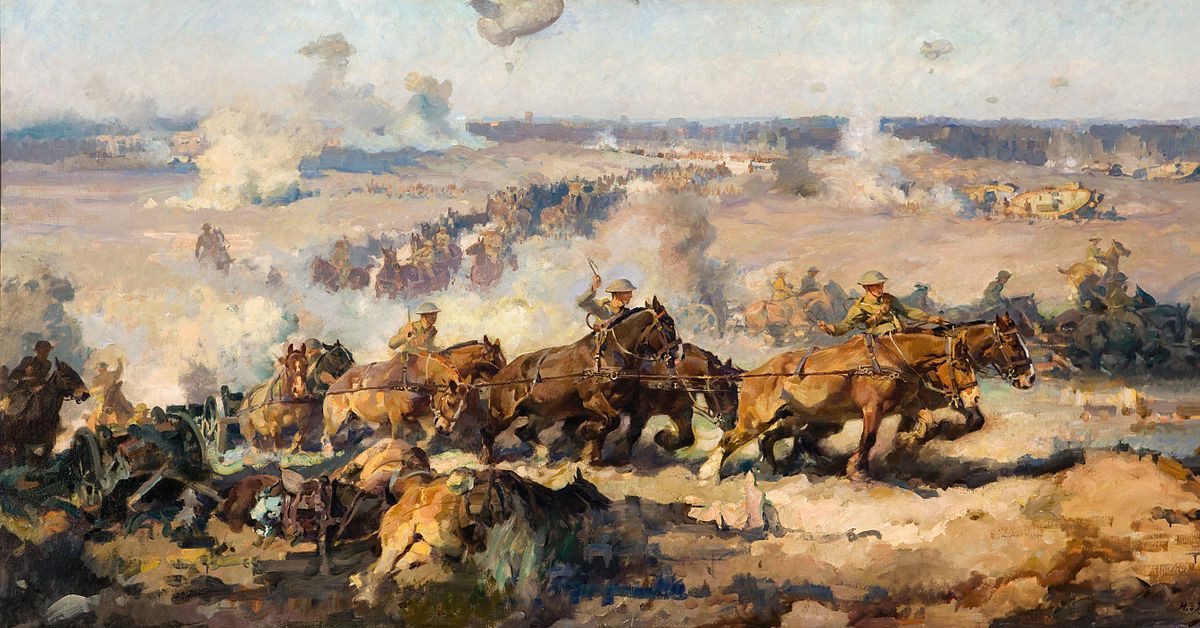
Free of the Trench: How British & Imperial Forces Overcame the Deadlock of the Western Front
Reading time: 12 minutes
The First World War came to an end just over 100 years ago, a mere moment’s time in human history. But as close as we are to it, a century is more than enough to surround that conflict with myth and misconception.
The image of the war on the Western Front, as brought to us through decades of outdated scholarship and popular fiction, is simple: two vast armies, each equipped with the latest murderous fruits of the industrial age, found they couldn’t decisively defeat one another in the field and so settled into a long, bloody, dirty, and consumptive war in which thousands of lives were thrown away every day, often for minuscule gains which would bring neither side meaningfully closer to victory.
The real story is more complicated. By 1916, it was plain to see that tactics like those championed by Haig, designed to draw out the enemy for a momentous set-piece battle, weren’t working, and even those neck-deep in the fight didn’t need the benefit of hindsight to recognise that.
This article is published with the permission of the author. If you would like to reproduce it, please get in touch via this form.

